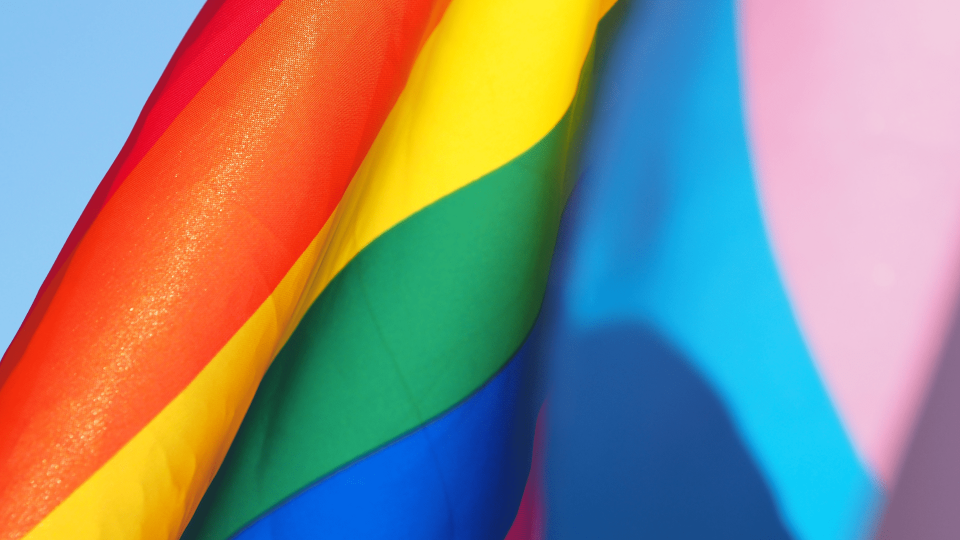
Photo by Cecilie Johnsen on Unsplash
Transgender, non-binary and gender-diverse (TNBGD) Ugandans, similar to other African countries, face harsh and violent experiences daily in a country that does not value the lives of LGBTQIA+ people. The new anti-LGBTQIA+ law, titled the Anti-Homosexuality Law, 2023 and signed into effect on 29 May 2023 by President Yoweri Museveni will aggravate and amplify this violence.
This new law criminalises homosexuality, a decision that has sparked outrage from human rights groups around the world. Amnesty International’s Regional Director for East and Southern Africa, Tigere Chagutah, writes that “this deeply repressive legislation will institutionalise discrimination, hatred, and prejudice against LGBTI people.” Chagutah urges that Uganda should instead be “enacting laws and policies that align with the principles of equality and non-discrimination enshrined not only in Uganda’s Constitution, but also the African Charter on Human and Peoples’ Rights.”
The anti-LGBTQIA+ legislation, which was first introduced on 9 March 2023, was voted on by the Ugandan parliament on 21 March 2023 and passed with an overwhelming majority supporting the law. Ugandan President Yoweri Museveni signed it into law on 29 May 2023. The new law while not criminalising Ugandans for identifying as LGBTQIA+ does criminalise “engaging in acts of homosexuality” with a punishment of life imprisonment. Further the law also “stipulates a 20-year sentence for ‘promoting’ homosexuality” – it is not yet clear how this may be interpreted and used to target LGBTQIA+ Ugandans. It may also infer those who support and show their support for the LGBTQIA+ community.
The new law, which had been in the works for several years, was initially introduced in 2009, but was struck down by Uganda's constitutional court in 2014. However, the government continued to push for its implementation, and after years of lobbying and pressure from conservative religious groups, the law has now been passed.
Over the years, there has been significant resistance to this law from LGBTQIA+, feminist and human rights activists and organisations. Sexual Minorities Uganda (SMUG) continues to actively advocate for LGBTQIA+ rights in Uganda despite being ordered by the Ugandan government to cease operating in August 2022. Professor Sylvia Tamale has been outspoken about the law, and in 2018 wrote that politicians are using “homosexuals as pawn” and that what it in fact is masking is that at the time, the presidential age limit was coming under fire. Museveni is once again looking at another term in office, and it is not surprising that once again “Ugandan homosexuals become the ultimate ‘pawn’ in the game of politics between the MPs and the President.”
The new law, which had been in the works for several years, was initially introduced in 2009, but was struck down by Uganda's constitutional court in 2014. However, the government continued to push for its implementation, and after years of lobbying and pressure from conservative religious groups, the law has now been passed.
This is not the first incident where politicians use LGBTQIA+ rights – and ultimately, lives – as a political weapon in securing votes and their leadership. They often cite how “unAfrican” homosexuality is as an argument for advocating for institutionalised discrimination. Thabo Msibi, in a journal article titled “The lies we have been told: On (homo) sexuality in Africa”, provides examples from Kenya, Malawi, Namibia, South Africa, Uganda, Zambia and Zimbabwe. LGBTQIA+ rights are not a political plaything to gain votes. These rights belong to real people with real lives who face tremendous risk of violence because politicians continue to play with their lives.
Human rights groups have condemned the law, calling it a violation of the rights of the LGBTQIA+ community in Uganda. For instance, the U.N. High Commissioner for Human Rights, Volker Turk, called it “probably among the worst of its kind in the world — is a deeply troubling development ” and that “It could provide carte blanche for the systematic violation of nearly all of their human rights and serve to incite people against each other.”
Several countries, including the United States, Canada and the United Kingdom, have also expressed their concerns over the law. The US Secretary of State Antony Blinken said it was "deeply concerned" about the law and “urge[d] the Ugandan Government to strongly reconsider the implementation of this legislation.”
The Left-Out Project (TLOP) recently conducted research in four countries, including Uganda, where it highlighted how in countries like “Rwanda and Uganda, anti-homosexuality and transphobic states actively criminalise the LGBTQIA+ community.”[1] TLOP, which focuses its research on the experiences of transgender, non-binary and gender-diverse (TNBGD) people’s experiences of online gender-based violence (OGBV), found among participants severe concerns about how violence displays itself within the country via online forums and in offline settings, including being physically assaulted, harassed by the police and receiving death threats online.
This is not the first incident where politicians use LGBTQIA+ rights – and ultimately, lives – as a political weapon in securing votes and their leadership. They often cite how “unAfrican” homosexuality is as an argument for advocating for institutionalised discrimination.
TNBGD individuals in our research shared with us their experiences of living in anti-LGBTQIA+ contexts and how this impacted on their ability to live safe and open lives. They also shared with us their experiences of OGBV such as deadnaming, harassment and death threats, and how this can also lead to physical stalking, where online violence moves to offline spaces. The Anti-Homosexuality Law not only rubber stamps discrimination and violence against LGBTQIA+ persons, but may also lead to further structural violence, such as hindering the ability to access health care and other essential services. For instance, it may become increasingly difficult for TNBGD people to gain access to sexual health services such as condoms, HIV/AIDS testing and treatment, and gynaecological health services for transgender men and non-binary and gender-diverse people with uteruses, to name only a few.
This is particularly concerning in light of the close correlation between discrimination and poor mental health, with an increase in the likelihood of depression, anxiety and self-harm in TNBGD people, especially when we are considering the lack of support within society and how some of them are ostracised from their families, which our research also found.
This new law is a setback for LGBTQIA+ rights in Uganda and East Africa, which are becoming more hostile towards the LGBTQIA+ community. This is a reminder that the fight for equality and human rights is far from over and affects real lives, even if it is not seen outwardly. As the international community continues to speak out against this discriminatory legislation, it is important to remember the ongoing struggle of LGBTQIA+ people in Uganda, other African countries such as Kenya and Rwanda, and the rest of the world.
TNBGD individuals particularly face a disproportionate amount of harassment, discrimination and violence online, and it is important to take steps to mitigate these risks and create a safer online environment. Uganda’s new legislation is likely to worsen the situation for TNBGD people in a country where they already face overwhelming violence.
This is a reminder that the fight for equality and human rights is far from over and affects real lives, even if it is not seen outwardly.
In the meantime, we encourage TNBGD Ugandans to implement digital safety and security practices to help keep them safe. Some of these include, as recommended in the TLOP report:
- Using privacy settings on their social media accounts to control who can see their posts and personal information.
- Being selective about whom they share personal information with such as their location, phone number or email address, and to not share it with people they do not know.
- Utilising the block or report feature on the platform that they are using to prevent perpetrators from contacting them again.
- Considering using a pseudonym instead of their name online to protect their identity.
We urge the government of Uganda to revisit its decision. We further suggest as others have done that Uganda takes the necessary steps to protect the rights and safety of all individuals, including those who are LGBTQIA+. This includes scrapping the current anti-gay law and implementing laws and policies that prohibit discrimination based on sexual orientation and gender identity, as well as taking action to hold perpetrators of violence accountable for their actions.
At this moment in particular, it is urgent and important that we support and amplify the voices of TNBGD people and LGBTQIA+ organisations in Uganda who are working tirelessly to advocate for their rights and safety. Organisations and support services to the LGBTQIA+ community in Uganda deserve our support and solidarity now more than ever.
Footnotes
[1] You can read some of our thinking here: McLean, N., & Cicero, T. (2023, 10 February). Interrogating transphobia within the LGBTQIA+ community. GenderIT.org. https://genderit.org/articles/interrogating-transphobia-within-lgbtqia-community. Our research findings will be published very soon.
- 243 views








Add new comment